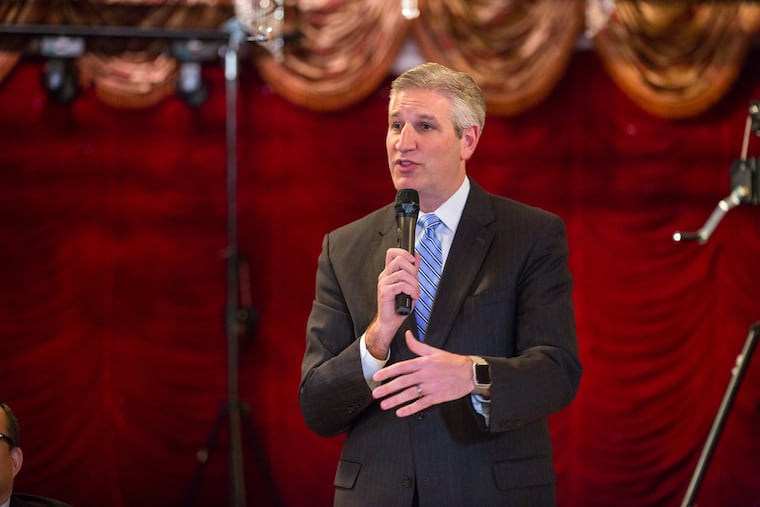New funding ahead for PFAS drinking water cleanup as legislature passes bill that will help Montco, Bucks
A bill expected to be signed by Gov. Tom Wolf will create two funding sources for communities whose drinking water has been contaminated.

Pennsylvania senators took steps Tuesday to address water contamination from chemicals known as PFAS, sending a bill to the governor’s desk that would provide funding to eliminate the substances from drinking water.
The legislation, sponsored by Rep. Todd Stephens (R., Montgomery), who called it a “game changer,” would create two funding sources for communities whose drinking water has been fouled. How much money the new programs might yield remains to be seen, but Stephens said the bill’s goal was to generate at least $5 million annually.
Gov. Tom Wolf plans to sign the bill into law, his office said. It passed the House in October.
» READ MORE: How three towns outside Philly became ‘trailblazers’ on clean drinking water
As a remedy for townships such as Horsham, where locals have largely borne the cost of treating the water, the bill would create a municipal authority that would receive a portion of the state tax revenue generated by the eventual reuse of the former Willow Grove base. That money can be handed out to any town grappling with contamination caused by a military site, Stephens said.
Through the state’s Pennsylvania Infrastructure Investment Authority (PENNVEST), which funds upgrades to water and sewer systems, the state also will develop a program to provide money to places contaminated by nonmilitary sources.
“I’m just thrilled. This is the first bill of its kind, and I’m glad we’re able to get it off the ground,” Stephens said. “Now the hard work begins.”
The former Willow Grove base and land surrounding it are set to be redeveloped, although that process was stalled by the discovery of the contamination. It will likely be years before the redevelopment is complete. For now, tax money will be redirected to the new municipal authority from other land in Horsham Township. Once the base and adjacent land are redeveloped, that tax revenue will be added to the fund.
The Navy and Air National Guard have spent tens of millions of dollars on PFAS cleanup related to the Willow Grove base. In August, Wolf pledged $3.8 million for the cause in Bucks and Montgomery Counties.
Horsham Township will create the municipal authority and bring in the surrounding affected communities, Stephens said. In Horsham, Warminster, and Warrington, residents have been saddled with water bill surcharges to cover the cost of treating the water.
“Our ratepayers are bearing the costs of removing these contaminants even though this was a problem caused by the federal government. That is simply unfair,” Stephens said in a statement.
The military has paid for cleanup in areas where it caused contamination, but uses an Environmental Protection Agency guideline that some consider lax. Horsham, Warminster, and Warrington chose to do cleanup that went beyond the military’s work, incurring extra costs.
“Our communities have been paying a hefty price for the removal of PFAS in their water, and I am thrilled they will no longer have to fund the remediation process for safe, clean drinking water,” said Rep. Meghan Schroeder (R., Bucks), who cosponsored the bill.
Pennsylvania was among the first states in the country where PFAS were discovered in public and private drinking wells. State regulators are developing a drinking water standard for the chemicals and testing water systems across the commonwealth.